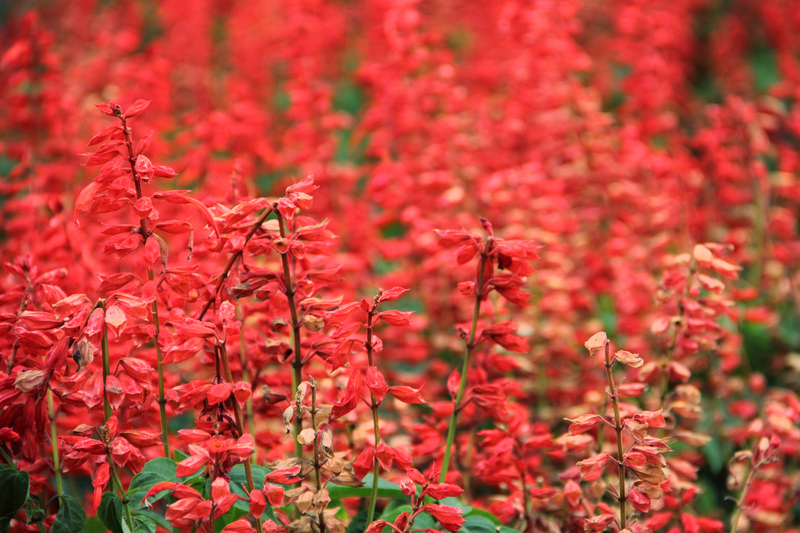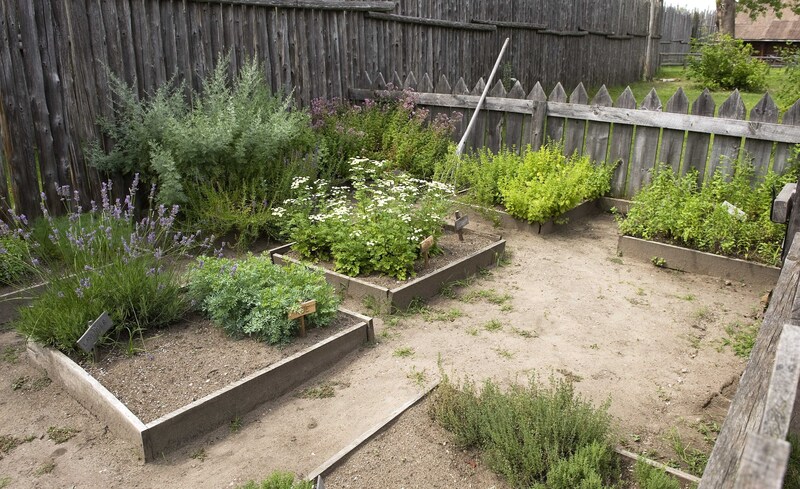Gardening Made Simple: 9 Essential Tips for Fresh Starters
Posted on 10/06/2025
Gardening Made Simple: 9 Essential Tips for Fresh Starters
Dreaming of lush flowers, homegrown vegetables, and a healthier connection to nature? Whether you've just moved into your first home or are seeking a rewarding new hobby, gardening offers a wealth of benefits. If you're a beginner, diving in can seem daunting. But don't worry--gardening can be easy, enjoyable, and incredibly rewarding once you get started the right way. This comprehensive guide breaks down simple gardening tips for starters, so you can cultivate a thriving garden with confidence.
Why Start Gardening?
Before digging into our practical gardening advice, let's explore why you should begin a garden:
- Health Benefits: Gardening is an excellent form of moderate exercise and exposure to nature helps improve mental well-being.
- Fresh Produce: Growing your own fruits and vegetables ensures a supply of fresh, organic goodies for your kitchen.
- Curb Appeal & Joy: Well-maintained gardens increase your home's curb appeal and provide daily joy.
- Sustainability: Gardening fosters appreciation for the environment and encourages eco-friendly habits.
If you're eager to embrace these advantages, our step-by-step guide makes gardening for beginners simple. Read on for the best beginner gardening tips!
1. Choose the Right Location
Sunlight is King: The foundation of easy gardening is selecting a suitable spot. Most vegetables, herbs, and flowers need a minimum of 6-8 hours of direct sunlight per day. Watch how sunlight travels in your yard or balcony:
- Observe sunny and shady spots throughout the day.
- Choose a location with good drainage to prevent water-logging.
- Make sure your chosen area is accessible for watering and maintenance.
Pro Tip: If you live in an apartment, container gardens on balconies or windowsills can be just as rewarding.
2. Know Your Soil
The heart of any garden is its soil. Poor soil can stunt even the hardiest plants. You don't need a science degree - but a basic understanding will go a long way to improving your gardening success.
- Test your soil: Use a simple kit from any nursery to check for pH, drainage, and nutrients.
- Enrich as needed: Add compost, leaf mold, or well-rotted manure for nutrient-rich garden beds.
- Drainage check: Dig a small hole and fill it with water. If it drains within a few hours, you're good; if not, consider raised beds or container gardening.
Tip: Amending your soil yearly keeps it fertile and loose, ensuring strong plant roots.
3. Start Small and Simple
A common mistake is over-ambition. While a sprawling vegetable patch looks tempting, small success is better than large-scale frustration. Here's how to keep your gardening for fresh starters manageable:
- Begin with a few containers or a small plot (4x4 ft raised bed works wonders).
- Limit to 3-5 plant varieties in your first year.
- Choose easy-to-grow rewards like lettuce, radishes, herbs (basil, parsley), marigolds, or sunflowers.
Remember: Less is more--as confidence and skills grow, so can your garden!
4. Select the Right Plants for Beginners
Not all plants are created equal, especially when you're starting out. The best plants for new gardeners are resilient, quick to grow, and forgiving of common mistakes.
- Vegetables: Lettuce, radishes, cherry tomatoes, bush beans, and zucchini.
- Herbs: Basil, sage, mint (keep mint in a pot, as it spreads vigorously!), and chives.
- Flowers: Marigold, sunflowers, calendula, and nasturtiums.
Check your region's USDA hardiness zone or climatic guidelines for specific plant recommendations.
5. Watering Wisely
Good watering habits are key for a thriving simple garden. Many newbies either overwater or underwater their plants. Here's how to master it:
- Check soil moisture by sticking your finger about an inch into the soil. If it feels dry, it's time to water.
- Water early morning (best) or late afternoon to minimize evaporation and fungal diseases.
- Water at the base of the plant, not from overhead, to avoid leaf diseases.
- Use mulch around plants to retain moisture and suppress weeds.
Avoid wetting leaves unnecessarily and remember: consistency is better than deep soaks followed by drought!
6. Feed Your Plants the Right Nutrition
Fresh gardeners often underestimate the importance of feeding plants. Most soils lack all the nutrients that thriving plants crave, so a little boost goes a long way.
- Use organic fertilizers enriched with compost, fish emulsion, or worm castings for safer, better yields.
- Follow instructions--over-fertilizing can burn plant roots.
- Include slow-release granular feeds for easy garden care.
Tip: Compost is the gardener's best friend! Recycle your kitchen scraps for a sustainable, budget-friendly nutrition source.
7. Keep Weeds in Check
Weeds compete for food, water, and sunlight. Left unchecked, they can quickly overrun a garden--discouraging for any fresh starter! Here's how to control weeds in simple gardening:
- Mulch thickly with straw, wood chips, or leaf mold to block weed seeds from light.
- Pull young weeds by hand right after watering, when soil is loose.
- Hoe lightly between rows every couple of weeks.
Persistence pays off! Spare a few minutes each week to keep your starter garden neat and healthy.
8. Learn to Recognize Pests and Diseases
While beginner gardens are generally robust, pest and disease problems can arise. The key is to spot trouble early and act quickly.
- Regularly inspect both sides of leaves and stems for discoloration, holes, or sticky residue.
- Encourage natural predators--ladybugs, lacewings, and birds by planting pollinator-friendly flowers.
- Use physical barriers like row covers where needed.
- Handpick visible pests such as caterpillars and aphids.
Tip: Always try organic remedies (neem oil, insecticidal soap) before resorting to chemicals.
9. Be Patient & Keep Learning
Gardening is a journey, not a race. Even with the best advice, there will be missteps--plants will sometimes fail. That's perfectly normal and part of the learning process.
- Keep a gardening journal to note what works (and what doesn't).
- Join community gardens, local workshops, or online groups for encouragement and new ideas.
- Read, experiment, and celebrate small victories. Every season brings new lessons.
Remember, even expert gardeners were once beginners! With each passing year, your skills and enjoyment will blossom.

Bonus: Expert Tips for Simplifying Your Garden Routine
- Install a rain barrel for free, eco-friendly irrigation.
- Use raised beds or containers if your soil is poor or space is limited.
- Label your plants--memory lapses can cause confusion, especially for young seedlings.
- Invest in ergonomic tools that feel comfortable in your hand.
These extra touches make easy gardening for fresh starters even more enjoyable.

Common Mistakes to Avoid for Gardening Starters
- Planting too early--wait until after your local last frost date for most tender crops.
- Ignoring plant spacing--overcrowding leads to poor growth and more diseases.
- Neglecting soil health before planting.
- Forgetting that gardens need regular attention--don't set it and forget it!
Conclusion: Gardening for Beginners Is Simple and Rewarding
Gardening needn't be complicated or overwhelming for fresh starters. By paying attention to your garden's basic needs--sun, soil, water, and plant selection--you pave the way for lush, beautiful results. Start small, stay curious, and enjoy the process. Not only will you reap the fresh delights of homegrown produce or blossoms, but you'll nurture your well-being and connect deeply with the rhythms of nature.
Ready to dig in? Use these simple gardening tips for beginners as your roadmap, and transform your garden dreams into reality--one sprout at a time!
Next Steps: Start Your Easy Gardening Journey
Have questions about what to plant, or wondering about troubleshooting new garden challenges? Leave a comment or join our mailing list for regular tips, seasonal checklists, and more inspiration. Happy gardening!
Latest Posts
Innovative Weed Control Practices: 3 Tips to Try
Expert Tips to Keep Your Garden Safe from Severe Weather Hazards
Aesthetic Hedge Trimming: Techniques for Eye-Catching Geometry

